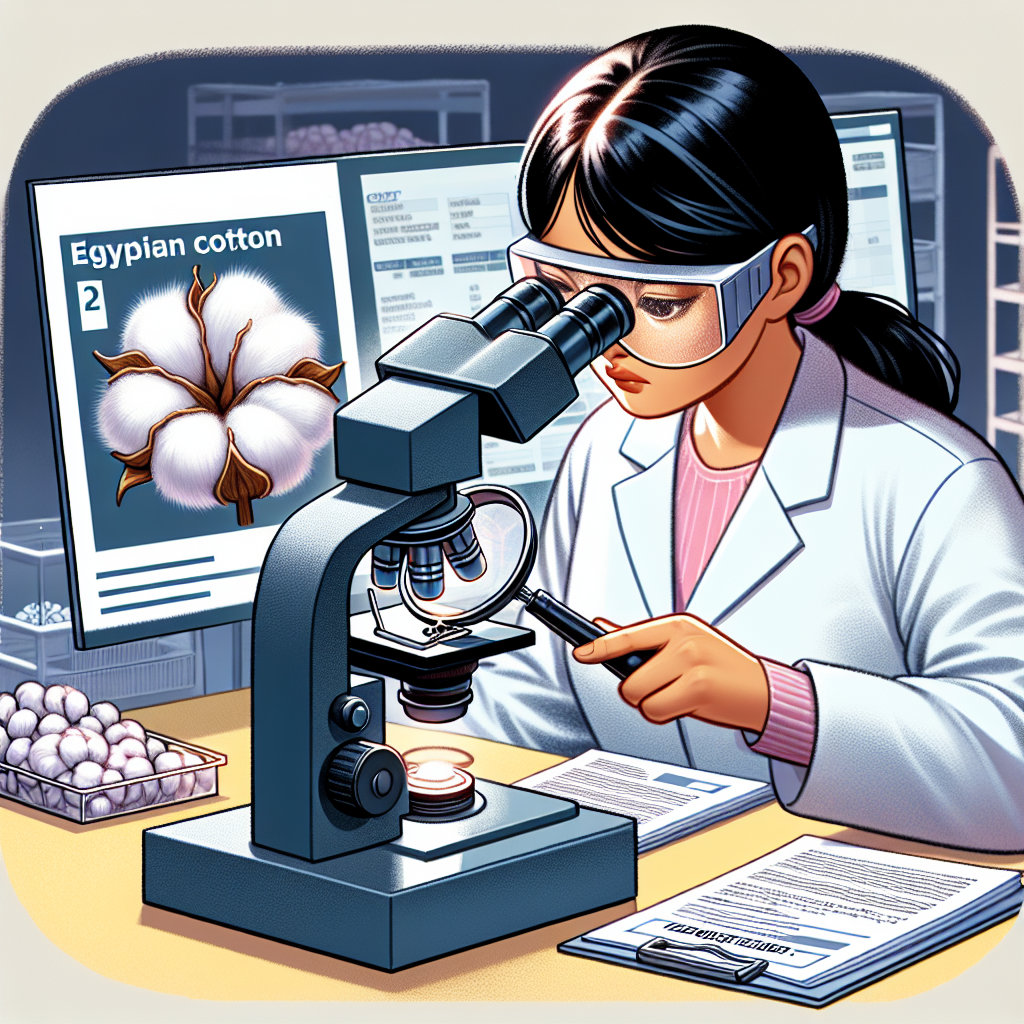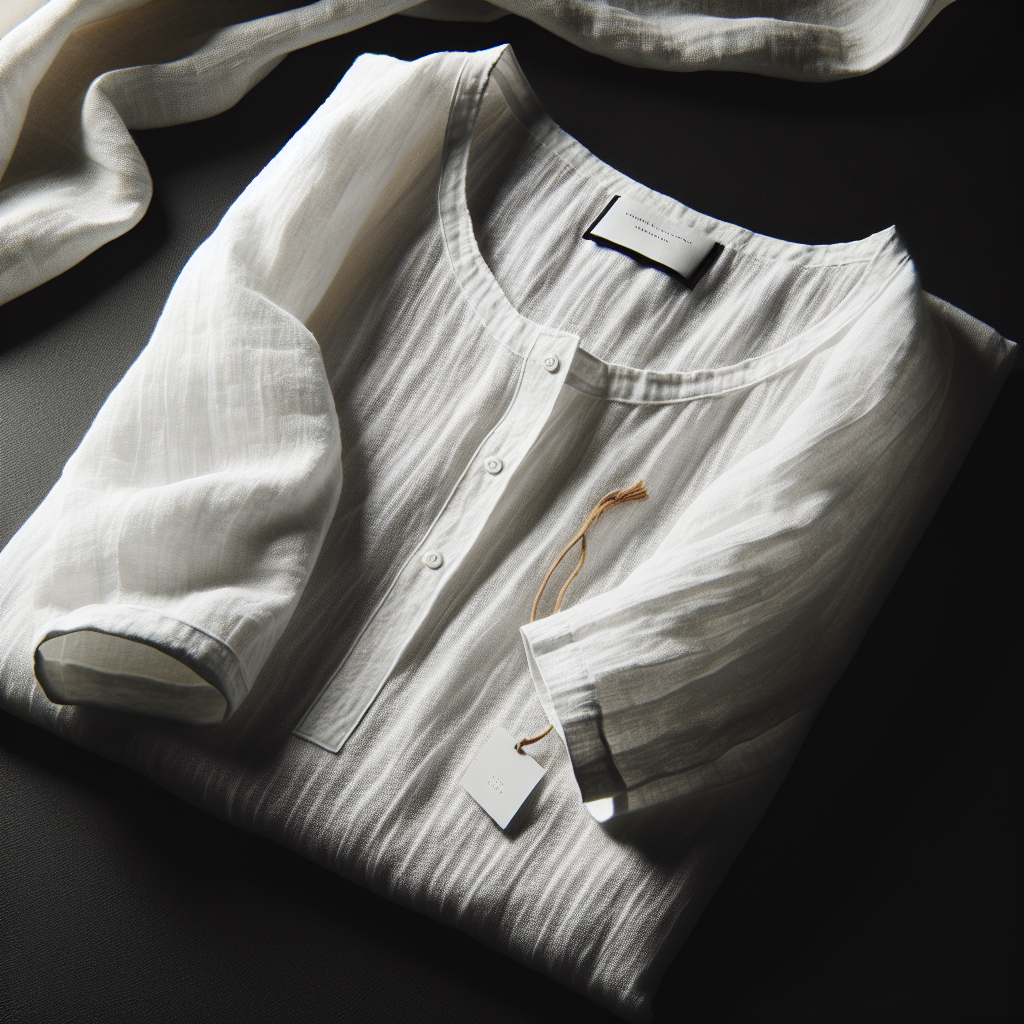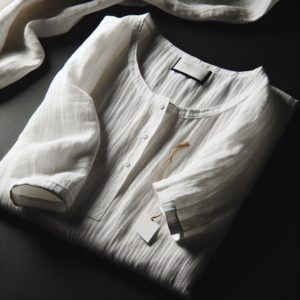The Importance of Authenticity Verification for Egyptian Cotton Products
Egyptian cotton is known worldwide for its luxurious feel, durability, and superior quality. It has been a highly sought-after fabric for centuries, with its origins dating back to ancient Egypt. However, with the rise of counterfeit products in the market, the authenticity of Egyptian cotton has become a major concern for consumers. This is why it is crucial to have a proper verification process in place to ensure that the products claiming to be made from Egyptian cotton are indeed authentic.
The demand for Egyptian cotton has increased significantly in recent years, leading to an influx of products claiming to be made from this premium fabric. However, not all of these products are genuine. In fact, studies have shown that a large percentage of products labeled as Egyptian cotton are actually made from lower quality cotton or even synthetic fibers. This not only deceives consumers but also harms the reputation of authentic Egyptian cotton.
One of the main reasons for the prevalence of counterfeit Egyptian cotton products is the lack of a standardized verification process. Unlike other premium fabrics such as cashmere or silk, there is no universal standard for Egyptian cotton. This makes it easier for manufacturers to label their products as Egyptian cotton without any proper verification. As a result, consumers are left to rely on the claims of the brand or the seller, which may not always be accurate.
The consequences of purchasing counterfeit Egyptian cotton products can be significant. Not only are consumers paying a premium price for a product that is not authentic, but they are also missing out on the benefits that genuine Egyptian cotton offers. Authentic Egyptian cotton is known for its long fibers, which make it softer, more durable, and more breathable than other types of cotton. It also has a higher thread count, which results in a smoother and more luxurious feel. Counterfeit products, on the other hand, may not have these qualities and can even cause skin irritation due to the use of synthetic fibers.
To combat the issue of counterfeit Egyptian cotton, various organizations and associations have taken steps to establish a verification process. The most notable of these is the Cotton Egypt Association (CEA), which was formed in 2005 to protect and promote the authenticity of Egyptian cotton. The CEA has developed a certification program that ensures the traceability and authenticity of Egyptian cotton products. This program involves DNA testing of the cotton fibers to verify their origin and ensure that they meet the standards set by the CEA.
In addition to the CEA, there are also other organizations and independent labs that offer verification services for Egyptian cotton products. These include the International Textile Manufacturers Federation (ITMF) and the International Cotton Advisory Committee (ICAC). These organizations use various methods such as fiber analysis and DNA testing to verify the authenticity of Egyptian cotton.
Apart from the verification process, there are also other ways to identify authentic Egyptian cotton products. One of the most common is the use of labels and tags. Genuine Egyptian cotton products will often have a label or tag that certifies its authenticity. These labels may also include information about the thread count and the country of origin. Another way to identify authentic Egyptian cotton is by its feel. Genuine Egyptian cotton has a soft and smooth feel, unlike other types of cotton.
In conclusion, the authenticity of Egyptian cotton is crucial for both consumers and the industry as a whole. With the rise of counterfeit products, it is important to have a proper verification process in place to ensure that consumers are getting what they pay for. Organizations such as the CEA and independent labs play a vital role in this process. As consumers, it is also important to be aware of the signs of authentic Egyptian cotton and to always check for labels and tags when purchasing products claiming to be made from this premium fabric. By taking these steps, we can ensure that the legacy of Egyptian cotton continues to thrive and that consumers get to experience the true luxury of this fabric.
How to Identify Genuine Egyptian Cotton: Tips and Tricks

Egyptian cotton is known for its luxurious feel, durability, and high-quality. It has been a staple in the textile industry for centuries, and its popularity continues to grow. However, with the rise of counterfeit products, it has become increasingly important to know how to identify genuine Egyptian cotton. In this article, we will discuss some tips and tricks to help you verify the authenticity of Egyptian cotton.
The first step in identifying genuine Egyptian cotton is to understand what makes it unique. Egyptian cotton is grown in the Nile River Valley, where the climate and soil conditions are ideal for producing long and strong fibers. These fibers are then hand-picked, resulting in a higher quality product compared to machine-picked cotton. This process also ensures that the fibers are not damaged, resulting in a softer and more durable fabric.
One of the most common ways to identify genuine Egyptian cotton is by looking at the label. The label should clearly state that the product is made from 100% Egyptian cotton. If the label does not mention this, it is likely that the product is not authentic. Additionally, the label should also mention the thread count, which is the number of threads per square inch. Egyptian cotton typically has a higher thread count, ranging from 400 to 1000, compared to other types of cotton.
Another way to verify the authenticity of Egyptian cotton is by feeling the fabric. Genuine Egyptian cotton has a soft and smooth feel, almost like silk. It is also known for its breathability, making it a popular choice for bedding and clothing. If the fabric feels rough or stiff, it is likely not made from Egyptian cotton. However, keep in mind that some manufacturers may use a blend of Egyptian cotton and other types of cotton, resulting in a slightly different feel.
The next step is to look at the weave of the fabric. Egyptian cotton is known for its long and strong fibers, which allow for a tighter weave. This results in a smoother and more durable fabric. You can check the weave by holding the fabric up to the light. If you can see through the fabric, it is likely not made from Egyptian cotton. Additionally, Egyptian cotton is also known for its luster, which is the shine on the fabric. If the fabric appears dull, it is likely not authentic.
Another important factor to consider is the price. Genuine Egyptian cotton is more expensive compared to other types of cotton. If the price seems too good to be true, it is likely that the product is not authentic. Keep in mind that some manufacturers may use marketing tactics to make their products seem like they are made from Egyptian cotton, but in reality, they are not.
If you are still unsure about the authenticity of the product, you can also do a burn test. Take a small piece of fabric and burn it with a lighter. Genuine Egyptian cotton will produce a fine ash, while synthetic fibers will produce a black, sticky residue. However, this method should only be used as a last resort, as it may damage the fabric.
In conclusion, there are several ways to identify genuine Egyptian cotton. These include checking the label, feeling the fabric, looking at the weave and luster, considering the price, and doing a burn test. By following these tips and tricks, you can ensure that you are purchasing authentic Egyptian cotton products. Remember, the quality and durability of Egyptian cotton make it worth the investment. So the next time you are shopping for bedding or clothing, keep these tips in mind to make sure you are getting the real deal.
The Role of Certifications in Ensuring Egyptian Cotton Authenticity
Egyptian cotton is known worldwide for its luxurious feel, durability, and superior quality. It has been a staple in the textile industry for centuries, and its popularity continues to grow. However, with the rise of counterfeit products in the market, it has become increasingly important to verify the authenticity of Egyptian cotton. This is where certifications play a crucial role.
Certifications are third-party verifications that ensure a product meets certain standards and requirements. In the case of Egyptian cotton, certifications are essential in guaranteeing its authenticity. These certifications not only protect consumers from purchasing fake products but also support the Egyptian cotton industry by promoting fair trade practices.
One of the most recognized certifications for Egyptian cotton is the Egyptian Cotton™ logo. This logo is a registered trademark owned by the Cotton Egypt Association (CEA), a non-profit organization that represents the Egyptian cotton industry. The CEA works closely with the Egyptian government to ensure that only genuine Egyptian cotton is labeled with their logo.
To obtain the Egyptian Cotton™ logo, manufacturers must go through a rigorous verification process. This includes DNA testing of the cotton fibers to confirm their origin and quality. The CEA also conducts regular audits of the manufacturing facilities to ensure they meet ethical and environmental standards. Only products that pass these tests and audits are allowed to use the Egyptian Cotton™ logo.
Another certification that guarantees the authenticity of Egyptian cotton is the Global Organic Textile Standard (GOTS). This certification is given to products that are made from organic fibers and meet strict environmental and social criteria. Egyptian cotton is known for its natural and sustainable production methods, making it a perfect fit for the GOTS certification.
The GOTS certification also ensures that the entire supply chain, from farming to manufacturing, follows ethical and fair trade practices. This not only benefits the workers but also supports the local communities where the cotton is grown. By choosing products with the GOTS certification, consumers can be confident that they are purchasing authentic Egyptian cotton while also supporting sustainable and ethical practices.
In addition to these certifications, there are also country-specific certifications that verify the authenticity of Egyptian cotton. For example, the Cotton Egypt Association has partnered with the Italian Textile and Fashion Federation (Smi-Atex) to create the “100% Egyptian Cotton – Made in Italy” certification. This certification guarantees that the cotton used in the product is 100% Egyptian and that the entire manufacturing process takes place in Italy.
The “100% Egyptian Cotton – Made in Italy” certification also promotes transparency in the supply chain by requiring manufacturers to disclose the origin of the cotton used in their products. This not only ensures the authenticity of Egyptian cotton but also supports the Italian textile industry.
In conclusion, certifications play a crucial role in ensuring the authenticity of Egyptian cotton. They not only protect consumers from purchasing fake products but also support the Egyptian cotton industry by promoting ethical and sustainable practices. The Egyptian Cotton™ logo, GOTS certification, and country-specific certifications are all reliable indicators of authentic Egyptian cotton. By choosing products with these certifications, consumers can be confident that they are purchasing high-quality, genuine Egyptian cotton.











